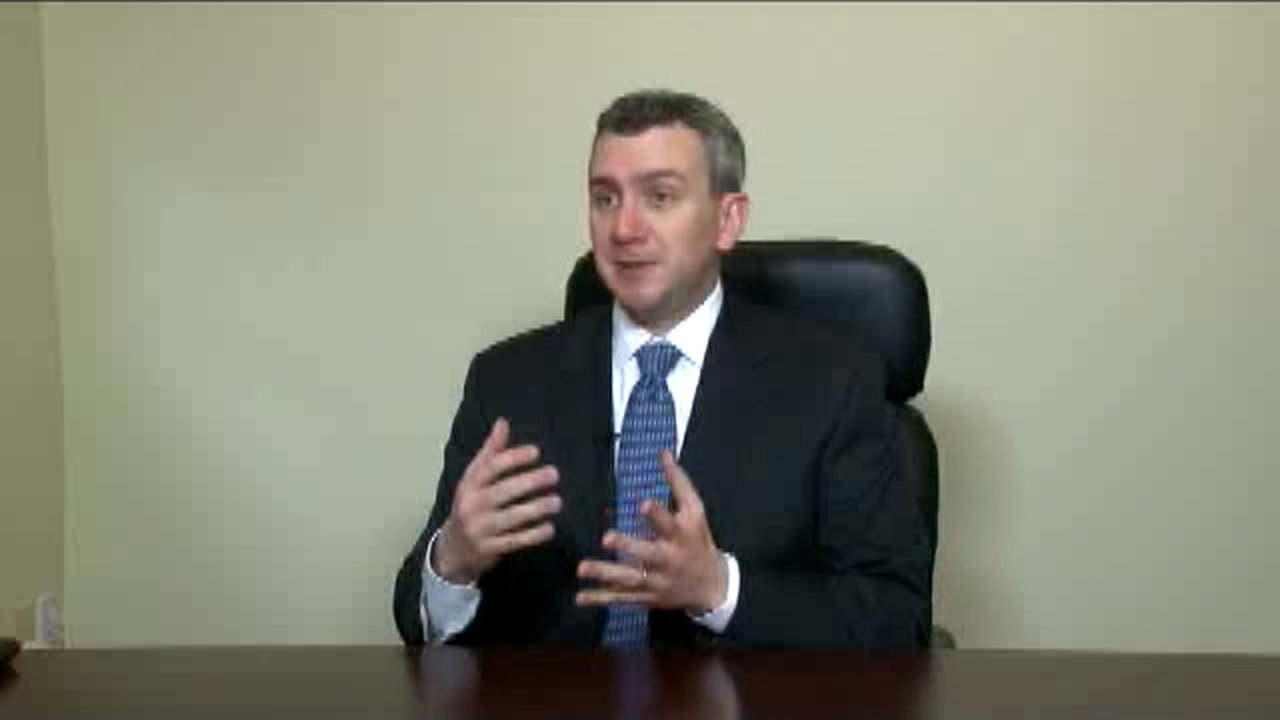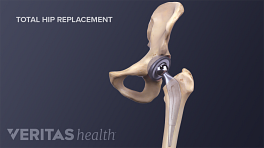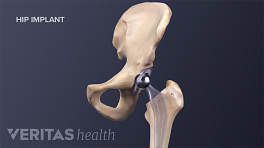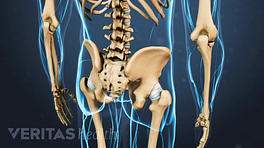Most people want to be self-sufficient and active as soon as possible. In fact, a primary goal of hip replacement surgery to help people live independently and return to the activities they enjoy.
Below are answers to common questions people have about rehabilitation and returning to normal activities.
In This Article:
- Postoperative Care for Hip Replacement
- “When Can I…?” Answers for Hip Replacement Patients
- Post-Surgical Hip Replacement Precautions and Tips
- Hip Replacement Surgery Rehabilitation Exercises
When Can Hip Replacement Patients Drive?
Some patients may drive as soon as 2 weeks after surgery 1 Hernandez VH, Ong AC, Orozco F, Madden AM, Post ZD. When is it safe for patients to drive after right total hip arthroplasty? Poster presented at the American Academy of Orthopedic Surgeons 2105 Annual Meeting; March 25-27, 2015; Las Vegas, Nevada. , while others may need as long as 8 weeks. 2 Canale ST and Beaty JH, eds. Campbell’s Operative Orthopaedics. Vol 1. 12th ed. Philadelphia, PA: Elsevier Mosby; 2013. 300-301. Importantly, drivers must not be taking any pain medications that impair driving skills—this is unsafe and illegal. In addition, reflexes and muscle strength should have returned to their pre-surgical levels. (As rehabilitation progresses, reflexes and muscle strength may be better than pre-surgical levels.)
Getting in and out of a car
Before returning to drive, just getting in and out of a car can be challenging, especially if the cars’ seats are low to the ground. Patients riding as passengers are advised to use:
- The front passenger seat with the seat base backed up as far as possible, to maximize legroom.
- A pillow or folded blanket can help raise the seat a few inches.
A nurse or physical therapist can teach a person how to get in and out of a car while minimizing the risk of falling or dislocation.
Handicap parking placard
Obtaining a handicap parking placard for a car requires a doctor’s approval. The specific regulations and paperwork vary from state to state. Patients may be eligible to use a placard before surgery as well as after.
See Additional Facts and Considerations for Total Hip Replacement Surgery
When Can Hip Replacement Patients Return to Work?
The first question many hip replacement candidates ask is “If I have this surgery, when can I return to work?” The recovery process is unique to each patient, but experts generally say that people with:
- Sedentary or desk jobs may be able to return to work after 4 or 6 weeks.
- Manual labor jobs, such as construction and landscaping, not to return to work. The frequent and repetitive pressure on the new hip may cause it to wear out prematurely, requiring a second surgery.
- Mixed labor jobs, which require frequent standing or occasional bending or lifting (e.g teachers) may return to work after approximately 3 months.
Prospective patients should talk to their surgeon about returning to work before surgery is scheduled.
Can a Hip Replacement Patient Play Sports?
Whether and when a patient can return to a specific sport depends on the patient, the type of hip replacement surgery, the hip prostheses, and the sport. In general, swimming, cycling and golfing are safe for people with hip replacements (once the surgical wound is healed).
Surgeons typically advise against participating in sports such as jogging and basketball that are likely to put pressure on the new hip and cause the prostheses to wear out prematurely. Certain sports, such as doubles tennis, may be played at a relaxed pace.
A patient should consult his or her surgeon about specific athletic goals.
When Can Hip Replacement Patients Have Sex?
People typically need to wait 4 to 6 weeks after surgery before having sex. During the first few months of resumed sexual relations, the hip replacement patient may need to be on the bottom (the “passive partner”). This puts less pressure on the new hip and may be more comfortable. After this time, though, most patients may use any sexual position that is comfortable.
- 1 Hernandez VH, Ong AC, Orozco F, Madden AM, Post ZD. When is it safe for patients to drive after right total hip arthroplasty? Poster presented at the American Academy of Orthopedic Surgeons 2105 Annual Meeting; March 25-27, 2015; Las Vegas, Nevada.
- 2 Canale ST and Beaty JH, eds. Campbell’s Operative Orthopaedics. Vol 1. 12th ed. Philadelphia, PA: Elsevier Mosby; 2013. 300-301.









